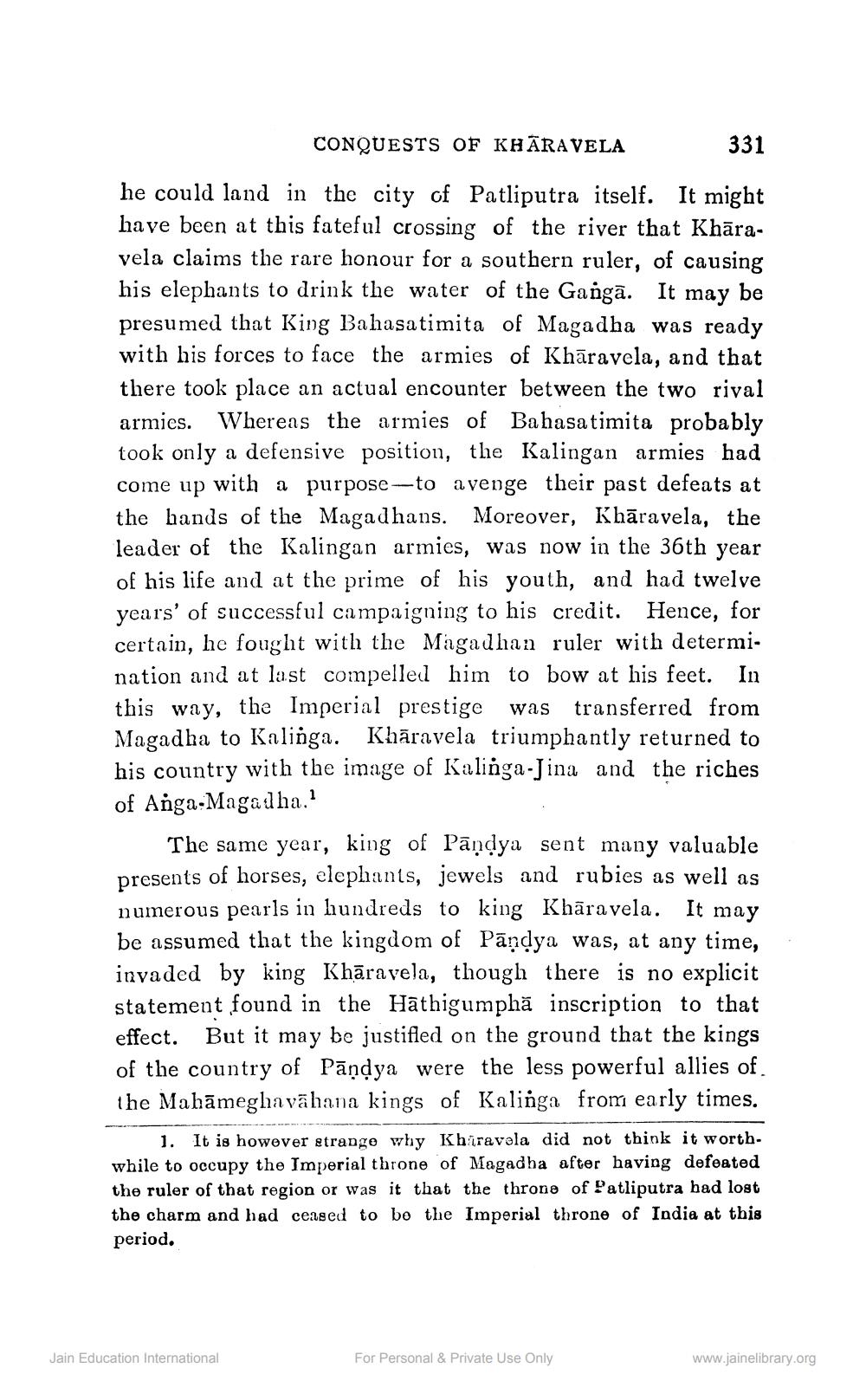________________
CONQUESTS OF KHĀRAVELA 331 he could land in the city of Patliputra itself. It might have been at this fateful crossing of the river that Khāravela claims the rare honour for a southern ruler, of causing his elephants to drink the water of the Gangā. It may be presumed that King Bahasatimita of Magadha was ready with his forces to face the armies of Khāravela, and that there took place an actual encounter between the two rival armies. Whereas the armies of Bahasa timita probably took only a defensive position, the Kalingan armies had come up with a purpose—to avenge their past defeats at the hands of the Magadhans. Moreover, Khāravela, the leader of the Kalingan armies, was now in the 36th year of his life and at the prime of his youth, and had twelve years' of successful campaigning to his credit. Hence, for certain, he fought with the Magadhan ruler with determination and at last compelled him to bow at his feet. In this way, the Imperial prestige was transferred from Magadha to Kalinga. Khāravela triumphantly returned to his country with the image of Kalinga-Jina and the riches of Anga-Magadha.
The same year, king of Pāņdya sent many valuable presents of horses, elephants, jewels and rubies as well as numerous pearls in hundreds to king Khāravela. It may be assumed that the kingdom of Pāņdya was, at any time, invaded by king Khāravela, though there is no explicit statement found in the Hāthigumphā inscription to that effect. But it may be justified on the ground that the kings of the country of Pāņdya were the less powerful allies of the Mahāmeghavāhana kings of Kalinga from early times.
1. It is however strange why Khiravala did not think it worth. while to occupy the Imperial throne of Magadha after having defeated the ruler of that region or was it that the throne of Patliputra had lost the charm and had ceaged to be the Imperial throne of India at this period,
Jain Education International
For Personal & Private Use Only
www.jainelibrary.org




